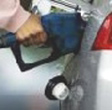
High transportation cost, more costly Agriculture production and Price hike of essentials would be the fact of Bangladesh in near future and four hundred thousand new poor would be generated in the society as fuel price has been increased almost 40 percent by the government, stated in a research paper unveiled in Dhaka by a local think tank on the first day of new Fiscal Year.
The government increased prices of petroleum products on Monday (June 30, 2008), for the second time during its tenure, which is a sharp rise of 33 to 37 percent from the previous hike of 13 to 21 percent in April last year.
According to government estimation, in Fiscal Year 2006-07, around 3.6 million tons of petroleum products were used in Bangladesh, 65 percent of which was diesel. Sixty percent of the diesel was used for transports, 32 percent for agriculture, and the rest was used for other purposes. The new price of diesel and kerosene is Tk 55 a litre, a 37.5 percent up, or Tk 15 more than the earlier price. As of consequence government re-fixed the Bus fare of highway passengers with 0.18 Taka increase of each Kilometer.
Renowned economist Wahiduddin Mahmud said ‘The government could save its subsidy by increasing the price of petroleum, so the savings should be used for the people who would be affected.’ He was talking in a gathering of economists, journalists, business representatives and intellectuals organised on the occasion of publishing of a research paper prepared by Shamunnay, the local think tank.
‘Inflation directly affects the poor people, so the government should have a clear direction on its policy about the amount it could save from the petroleum sector by increasing the price,’ Wahiduddin Mahmud stated while he was talking on the research paper.
Mr. Mahmud, a former adviser to the caretaker government, pointed to the fact that the price hike of petroleum products is an influence of international market. However, He criticised the government for increasing the price of kerosene.
Dr Atiur Rahman, another prominent economist said, the government could save Tk 70 billion by reducing the subsidy from energy sector. ‘The consequence of the increased price of diesel would make four hundred thousand people poor, so the government needs to spend the savings for them,’ Atiur Rahman said and he urged the government to reduce system losses in different sectors.
The research paper showed a more alarming picture while calculating food inflation for the marginal population in May that stood at 19.91 percent in Dhaka city and at 17.16 per cent in rural Bangladesh. The Bangladesh Bureau of Statistics estimated it at 9.82 percent in April.’ The food inflation is 19.65 per cent for garment workers, 19.81 per cent for rickshaw-pullers and 21.12 percent for day-labourers,’ the research paper pointed out.
Chief Adviser's Special Assistant professor M Tamim told to a local newspaper that Bangladesh sought global actions especially by rich countries to contain the skyrocketing petroleum prices in the international market as it eats up major portion of the development funds in the developing and least developed countries (LDCs).
"It is a 'global crisis' and hence global leaders especially the rich countries including those of oil-producing ones and more importantly the United Nations should come forward to tackle the issue seriously,” professor M Tamim said.
Major political parties including Bangladesh Awami League (AL), Bangladesh Nationalist Party (BNP), Jatiya Samajtantrik Dal (Inu), Samyabadi Dal react on price hike of petroleum products and they urged the government to rethink about the increase.
Here should be mentioned that new budget has come into effect from 1st of July. Just before the day of new fiscal year government decision to increase price of petroleum product make the people incredulous.
|
|


Comments:
wahid
August 29, 2008 at 12:00 AM
i agree this statement